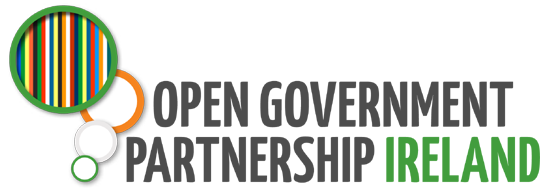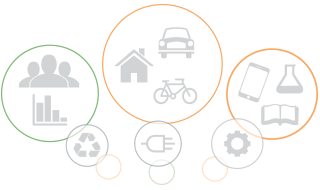Open Data Workshop

“Just as oil was likened to black gold, data takes on a new importance and value in the digital age.”
-Commissioner Neelie Kroes
Open Data, data that is published under an Open License so that it can be freely accessed and used, is recognised internationally as a valuable resource that can drive innovation, as well as shining a light on the operation of public services.
The Department of Public Expenditure and Reform (D/PER) launched the Irish National Open Data portal, http://data.gov.ie, in July 2014, as part of a wider Open Data initiative. Facilitating an effective Open Data ecosystem requires a number of elements, as outlined in the Open Data Ireland Best Practice Handbook. These include supporting data publishers, engaging with data users, and establishing and adopting standard practices.
On Thursday 19th February, the Department of Public Expenditure and Reform hosted an Open Data Workshop in the National Digital Research Centre (NDRC). The aim of the workshop was to bring together Open Data publishers and Open Data users to discuss key opportunities, challenges and approaches to Open Data. The Workshop was well attended, with 100 participants. The attendees came from different sectors: 35% from the public sector, 30% from industry (both SMEs and larger organisations), 23% from the research domain, and 12% came from civil-society, media or other domains.
The Workshop was structured around a number of discussion sessions so that all attendees had the opportunity to participate. Evelyn O’Connor from the Department of Public Expenditure and Reform introduced the Workshop, highlighting the current status of the Open Data initiative and outlining the various activities that are underway.
This was followed by the first discussion session, focusing on six particular domains: transport, heritage, geospatial, fiscal, local government, and natural hazards / flooding. The NDRC venue leant itself perfectly to facilitating the parallel roundtables, with each group setting up in a different area.
We next heard from a number of organisations on how they were currently using public-sector information and what are the challenges they are facing. Oisin Ryan of LocalMint, Vinnie Quinn of Evercam and Valerie Vetter of Aftering discussed the time-savings their start-ups could realise with Open Data, as well as the added-value it could bring to their innovative products. Eamonn O’Neill, data scientist at the internationally recognised organisation The Web Summit, presented the potential use of Open Data for data analytics and business intelligence. Nuala Haughey from the Think Tank TASC talked about the importance of Open Data for a transparent and accountable public sector.
The second discussion session focused on general aspects of Open Data, namely: Open Data Licensing, Open Research Data & Non-Tabular Digital Content, data.gov.ie Open Data Portal, Priority Domains to Target, and Open Data Access: APIs vs. Bulk Downloads.
A number of common themes ran through both discussion sessions, such as the need for standardised, machine-readable data, the importance of metadata, and the benefits of real-time data and APIs. Some of the datasets that emerged as being high-value were townland/administrative boundary data, road and terrain data, crime statistics and weather data. Many challenges were discussed in the different groups, for example, licensing, ownership of aggregated data, resources and the capacity of public bodies to publish data, compliance with data protection, and ensuring data is up-to-date.
Through the discussions, a number of opportunities for promoting Open Data in Ireland were also discussed. Local Enterprise Offices were identified as potential regional supporters of Open Data Initiatives. Requirements from the EU could act as a driver for Open Data, for example, through directives or through compliance with Eurostat or EU-funded projects guidelines. Some ideas for moving forward with Open Data included putting in place workflows for newly-created data to be automatically published as Open Data, as well as improving the feedback mechanism on the portal.
The Workshop produced many fruitful discussions, many of which were cut short due to time constraints. The scribe notes from the Workshop can be found here. It is vital to continue these conversations – at future workshops, online, or via public consultations, such as the recent consultation on Licensing found here.
Government Reform Unit
Open Data Workshop
